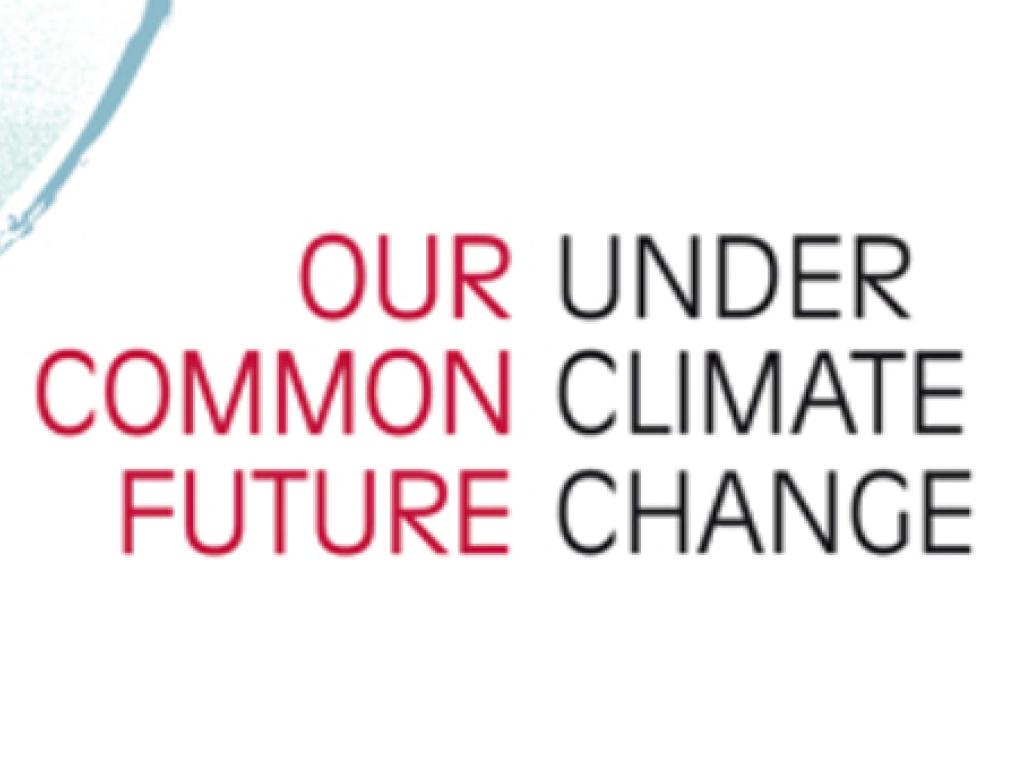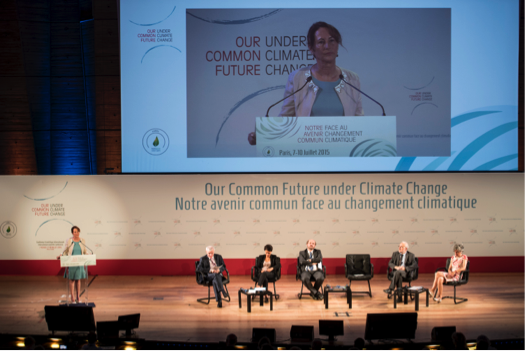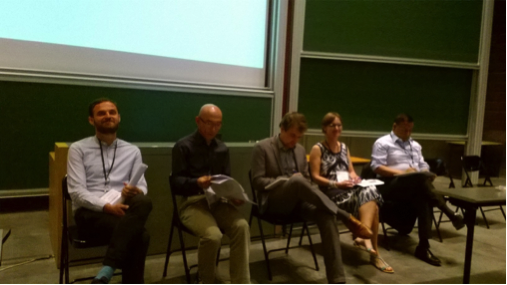About Humility in Climate Science and Policy.

In this blog, I want to reflect on my recent participation in the international conference: “Our common future under climate change”, hosted in Paris from 7-10 July. Overall, I appreciated this large event where I met and spent time with former colleagues and even found cutting-edge presentations among the multiple parallel sessions offered at the meeting. Yet, after 4 intensive days, (yes, intensive, as the sessions ran from 9am to 7pm!), I found myself a bit overwhelmed by the climate science and policy. Most keynote speakers took to the floor as scientists or policy-makers, and there were few opportunities left to share real experience - the experiences from the ‘ordinary citizens'’, stories that demonstrate how climate change is already affecting livelihoods, nor was there an opportunity for these people to share personal lessons to inspire future climate policy. In my opinion, this conference highlighted the gap between the science and policy, on one hand, and the ‘real world’, on the other - quite a salient observation, but one not so uncommon in large international events such this.

As a scientist with a background in political science, I do believe that science and policy can contribute to solve problems. Yet, real world problems are often more complex, and science and policy only cover part of the picture. In a speech offered by Prof. Sheila Jasanoff’[1] on conference Day 4 was welcomed as a breath of fresh air. While all the plenaries so far had focused on the latest science and technology to measure climate change impacts, and on international policy for mitigation and adaptation, Prof. Jasanoff’s talk about humility and the need to acknowledge the limits of science and policy as solving problem tools, was both refreshing and inspiring.
The talk reminded us that, beyond the science and policy, climate change is fundamentally an issue of inequality. While it is true that all of humanity is facing an uncertain – potentially calamitous – future in the context of climate change, we are far from all being at the same disadvantage. Already, the adverse consequences of climate variability and extremes are falling disproportionately on the poorest and most vulnerable of this world. It is thus critical to reframe the climate change debate from a political and scientific one to one about justice and equality.
In a context of uncertainty, humility is a necessary pathway for scientists and policy-makers. It requires democratising politics and science to redress current inequality. For instance, it is important to truly understand the roots of vulnerability before spending a whole lot of money on new technologies for disaster risk detection and warning systems, because these are depicted by external experts as best tools to help ‘vulnerable’ communities. It is also critical to acknowledge that we, alone, as scientists or policy-makers, cannot solve the climate change problem. This point links to another topic of interest, put forth (to some extend) during the Paris conference, on research and knowledge co-production.

Knowledge co-production is challenging the way problems are scientifically framed. It requires one to think harder and adopt innovative framing lenses to analyse complex issues; it implies adding more voices to the debates, being more inclusive, and embracing other insights and perspectives when dealing with a specific problem, according to a blog by Future Earth.
In the sphere of climate change, knowledge co-production means that the voices of the people – the ‘ordinary’ citizens of the Earth – must be heard, acknowledged and taken into account. Valued. It means that we, as scientists, must recognise that, alone, we may not be smart enough to solve the problem. We are not only researchers but also ordinary citizens, so why not step back from our scientific norms and paradigms and try to understand other perspectives and views? This is humility in science; it is not easy but it is all the more important when facing a challenge as complex, uncertain and unequal as climate change. To paraphrase Prof. Jasanoff, "uncertainty is not a disease that [scientific] knowledge must cure".
I believe there are lots of opportunities for humility in climate change adaptation, which is still a young field of research and action. It is open for new kinds of approach, not embedded in normative understanding or following pre-defined paradigms. On the contrary, it calls for new creative ways to link up various fields - from social science to history, including climate modelling - as well as to bring in various insights and perspectives, to go beyond existing limits in science and policy. Questioning and being open about our research approach and methods is a first step towards knowledge co-production; a pathway that hopefully will guide us towards a world with fewer inequalities and inequities, where we can rightly talk about, and envision – with honesty and humility - ‘Our common future’.
[1] Sheila Jasanoff is Pforzheimer Professor of Science and Technology Studies at the Harvard Kennedy School.
Main reference: Jasanoff, S. (2007). Science & Politics Technologies of humility. Nature, 450, 33. doi:10.1038/450033a